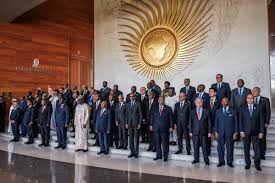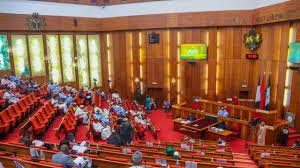Incapable of providing the necessary palliatives to keep people at home while we combat this deadly virus, Buhari Government is forced to lift the lockdown while the number of infected people is on the increase, setting a stage for possible escalation of community transmission. A whopping 195 people were added yesterday alone from just 824 tests! That’s 23.6 percent of the sample test.
Being a novel virus with no cure or vaccine yet developed, the best way to contain it remains those measures as advised by experts: washing of hands, social distancing, and usage of face masks among others. Lockdown is also being used worldwide to limit its community spread. But to lockdown, the government has got to provide palliatives, especially to those whose livelihoods will be most affected. Nigeria has a big informal sector, which include the huge population of low-income, self-employed artisans and traders, whose survival depends on daily sales. The palliatives so far claimed to have been disbursed by the Federal Government (and some of the affected state governments) have proven completely inadequate.
There is cry of pervasive hunger everywhere, with the attendant security implications (several homes and shops were burgled in Ogun and Lagos, even in broad daylight!). The fear of an explosive anger of a hungry populace on the streets seems to be the beginning of wisdom for the regime. So the case is now being presented as a case of hunger-versus-virus. To curtail the virus, we need to lockdown. To prevent people from dying from hunger, we have to lift the lockdown, even if it means people dying in thousands.
I have heard people, including educated ones, conclude that the lockdown was really of no effect, after all, the number still kept climbing, forgetting that the numbers could have been far worse had there not been lockdown at all; had schools, banks, bars, and major markets been opened in Lagos, Ogun and Abuja in the last five weeks.
But the question is: has Nigeria maximally used the opportunity afforded it by the lockdown? How many tests have been carried out to date? The figure is embarrassingly low, even using the standard of some countries here in Africa. South Africa with a population of 67 million has so far run over 180,000 tests, while Ghana with a population of 31 million has done over 70,000 tests. Nigeria with a population of 200 million is yet to reach 13,000 tests as of yesterday! Of what use is the lockdown, if you’re not doing mass-testing? How do you know the demographic spread of the disease if your sample size of the population is infinitesimal? With the smallness of the size of the tests, nobody is really sure that the virus has not spread very widely within the population, especially for a disease that can leave the carrier asymptomatic.
To answer the binary question of hunger-versus-virus which is being posed by the regime and the apologists of capital in mutual exclusivity of either hunger or safety, we need to ask: is it really impossible for people to be safe and still not die of hunger? Rather than hunger or safety, why can’t it be no hunger, and safety? Is lockdown without hunger impossible? Can the Nigerian state not afford to give the populace the basic needs of food for the time needed to maintain a lockdown? These and other probing questions are important for citizens to ask.
(To be continued )
























This COVID 19 situation has revealed the inadequacies of our health system, it is high time Government started allocating a reasonable amounts to the health sector.